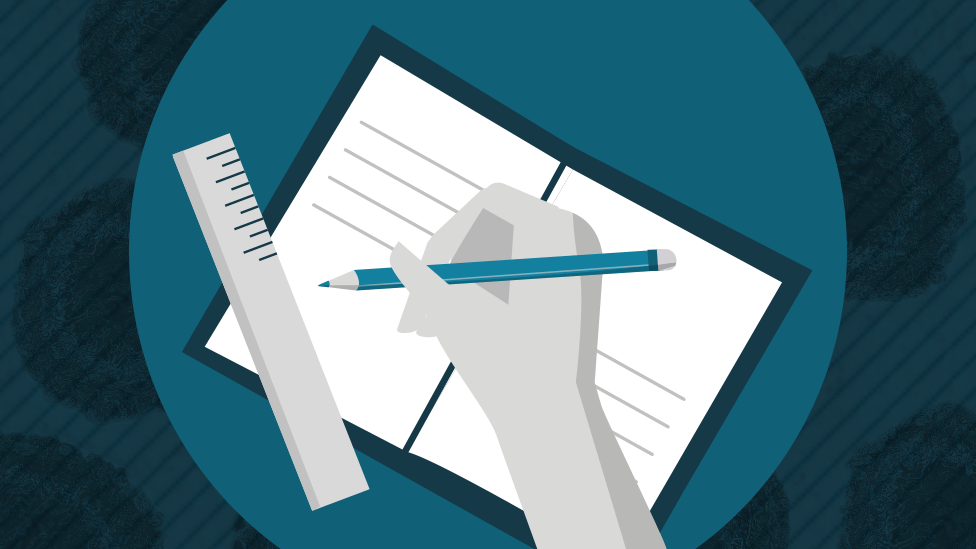Covid in Scotland: Youngest pupils return as schools reopen
- Published
- comments
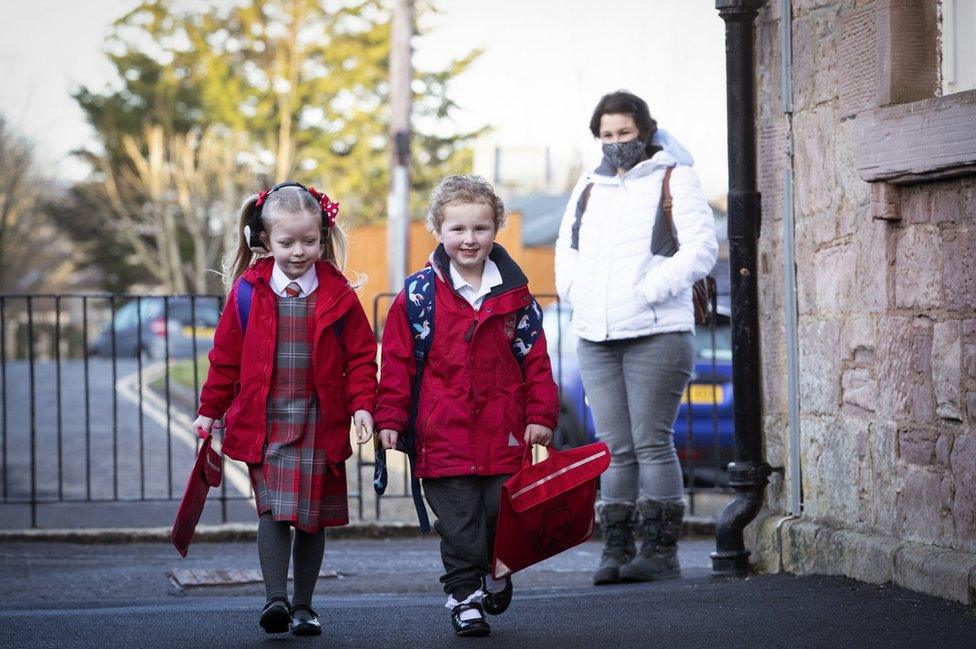
P1 pupils Grace Lee (left) and classmate Grace McKeeman, both aged five, arrive for their first day back at Inverkip Primary School
Scotland's youngest pupils are returning to the classroom for the first time since the Christmas break.
It is stage one in a phased reopening of schools which have been closed to all but a minority of pupils since the beginning of January.
Education Secretary John Swinney insisted "detailed clinical analysis" assured him it is safe.
But concerns have been raised about the measures in place to reduce risk of transmission.
Mr Swinney told BBC's Good Morning Scotland that case prevalence data would be closely monitored to determine the impact of the phase one return.
But he said Scotland would not be following England, where all pupils are due to return to school on 8 March.
Asked if it would be "dangerous" to send everyone back on that date, Mr Swinney said: "I wouldn't have clinical authorisation to do that."
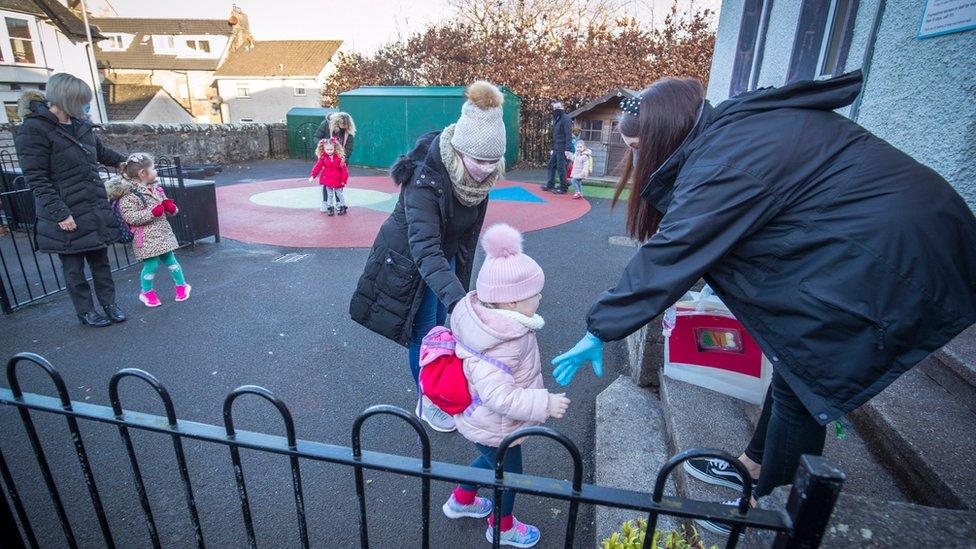
The deputy first minister added: "We will move as quickly as we possibly can do but we have to do it within the scientific and clinical advice that is available to us."
Mr Swinney also urged parents to act responsibly during the first phase of lockdown easing.
He added: "The biggest threat to the opening of schools is not outbreaks in schools. It is community transmission."
Epidemiologist Dr Deepti Gurdasani told BBC Scotland at the weekend there was some evidence from England that younger children could bring infections back into homes.
But Prof Devi Sridhar, chairwoman of global public health at Edinburgh University, said the return of schools was about balancing the "risks and benefits".
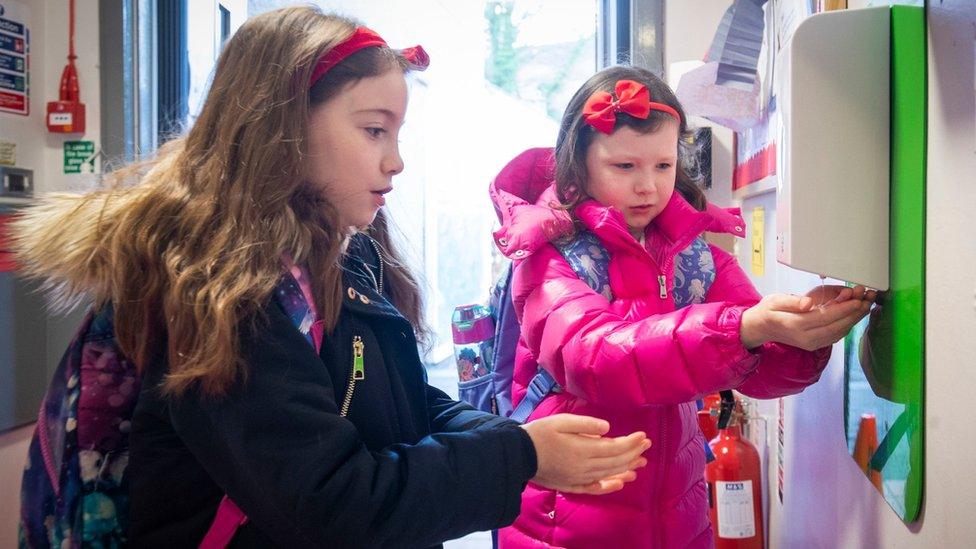
She told BBC Good Morning Scotland: "There will likely be cases emerging in schools over the next few weeks but the vast majority of schools should be fine, and that we have to keep perspective on."
She said the majority of scientific evidence was that there is an "age gradient" in infections - with very few outbreaks in nurseries but with teenagers and university students much more prone to infection.
Prof Sridhar added: "I think what we have to do is work back up through that gradient. We are doing that starting with primaries and early years - the approach Denmark has also taken."
On Sunday the deputy first minister pointed to documents prepared by a government expert advisory group, external which states that younger children are less likely to catch or pass on the virus than older children and adults.

Are you a parent or a teacher? How do you feel about children returning to school? Share your experiences by emailing haveyoursay@bbc.co.uk, external.
Please include a contact number if you are willing to speak to a BBC journalist. You can also get in touch in the following ways:
WhatsApp: +44 7756 165803
Tweet: @BBC_HaveYourSay, external
Please read our terms & conditions and privacy policy

Plans to reopen schools have been welcomed by opposition parties but the Scottish Conservatives have urged the government to publish plans for helping pupils catch-up with schooling they have missed.
As well as the youngest children returning to school, a small number of senior secondary pupils will be allowed into school buildings on a part-time basis to complete work for national qualifications.
Other age groups will continue to learn from home and it is unlikely they will return to the classroom before 15 March at the earliest.
In primary schools measures to minimise the spread of the virus include regular hand-washing, open windows, and 2m physical distancing between adults, and between adults and children.
Staff will also be offered regular lateral flow tests.


Resources to support learners, teachers and parents during lockdown.

Prof Jason Leitch, the national clinical director, has written to parents asking them to play their part in the safe return.
He urged them to:
wear a face covering at drop off and pick up times, and in congested areas
limit drop off and pick up times to one adult
keep 2m away from other adults when waiting for children
avoid car shares and limit use of public transport
be vigilant for symptoms of coronavirus in the household and follow the Test and Protect guidance.
Appealing to parents not to relax the rules elsewhere, he reminded them that indoor play dates are not allowed - though children can play together outside.
And he said parents should continue to work from home if they are able to do so.
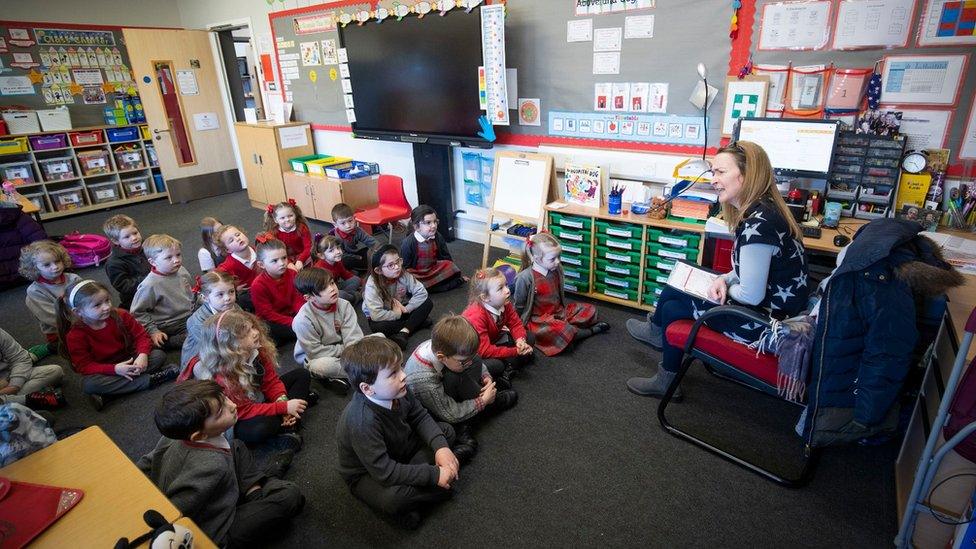
Mr Swinney's safety assurance came after an epidemiology expert raised concerns about the knock-on effects of sending children back to school.
Dr Deepti Gurdasani, of Queen Mary University of London, said data from England showed primary school children were two times more likely to be the first Covid case in a household, and once infected were two times more likely to infect their contacts.
Speaking to BBC Scotland's The Sunday Show, she said children aged six and above should wear masks in schools and more attention should be paid to ventilation.
The EIS teaching union has also raised concerns about school safety and have said a blended learning model - with about half of pupils in classes at any one time - would be more appropriate.


- Published21 February 2021
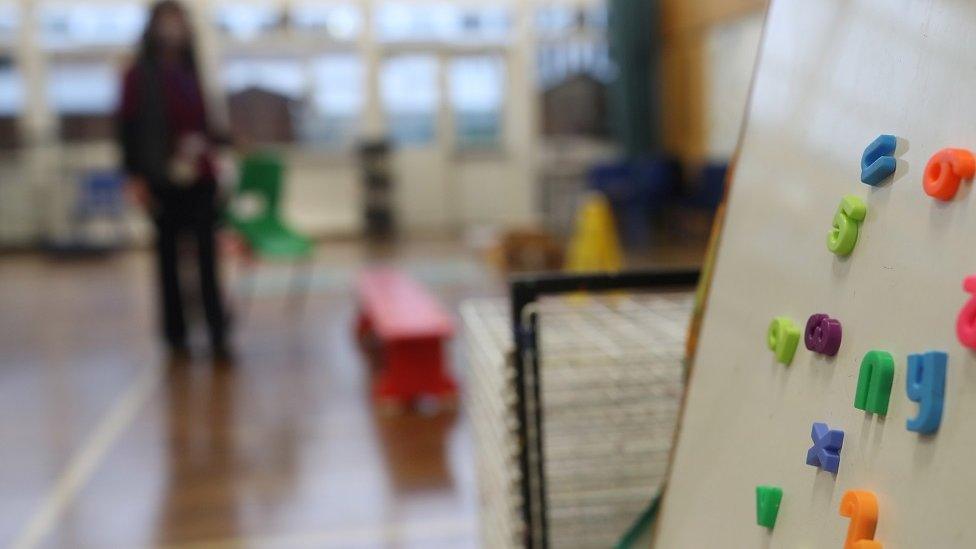
- Published16 February 2021
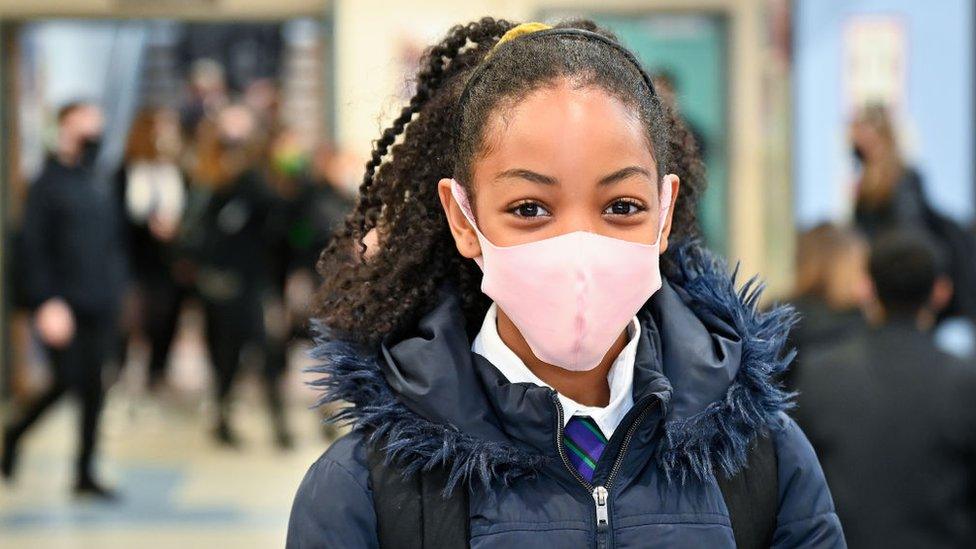
- Published16 February 2021
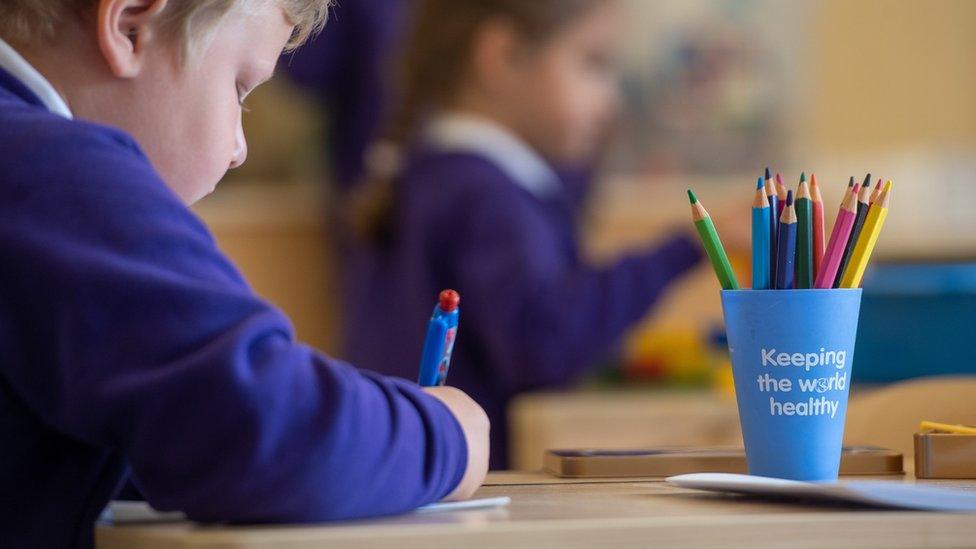
- Published2 February 2021
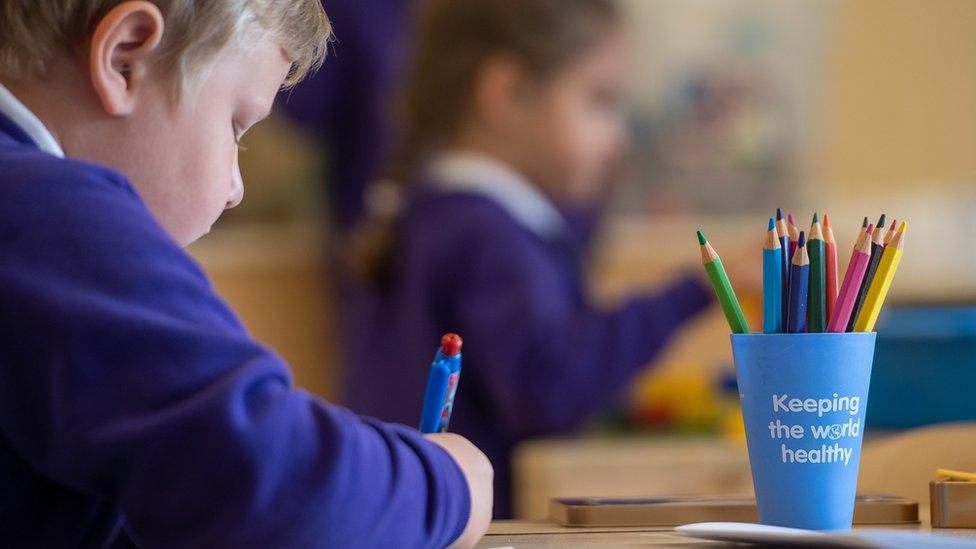
- Published28 January 2021
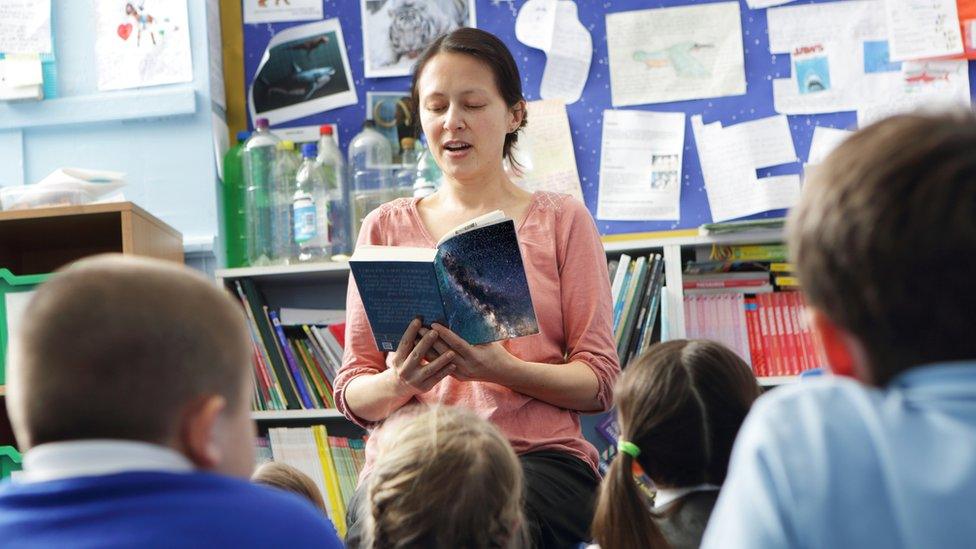
- Published23 February 2022
